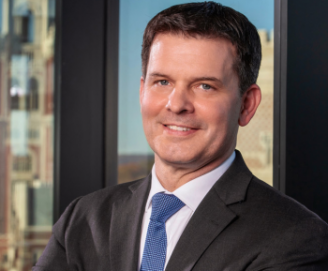The COVID HASTE Data Science Workshop: A chance to "really engage and face the problem"

The COVID HASTE Data Science Workshop series brings together researchers from numerous disciplines to present COVID-19-related research. The most recent workshop focused on approaches to local contact tracing for Yale and New Haven. Brian Weeks, epidemiologist for the New Haven Health Department, joined Yale researchers Rajit Manohar, Robert Soulé, Tyler Shelby, and Linda Niccolai.
School of Engineering & Applied Science Dean Jeffrey Brock, who also serves as Dean of Science in the Faculty of Arts and Sciences, organized the series. “It’s important to voice to the science and engineering community not to wait for everything to calm down, but to really engage and face the problem,” he said.
We spoke with Dean Brock and Sarah Miller, Assistant Dean for Science & Engineering, about the series and its goals.
How did the series start?
 Jeffrey Brock: We had been organizing research groups as part of our planning for the data science priority in the University Science Strategy Committee’s report. When the pandemic hit, though, it became clear that there was a bigger challenge in front of us. With researchers having to work remotely, many approached me and said ‘How can we help?’ This was a great opportunity to bring the community together to address COVID-19 and how basic science and engineering research can engage with this question.
Jeffrey Brock: We had been organizing research groups as part of our planning for the data science priority in the University Science Strategy Committee’s report. When the pandemic hit, though, it became clear that there was a bigger challenge in front of us. With researchers having to work remotely, many approached me and said ‘How can we help?’ This was a great opportunity to bring the community together to address COVID-19 and how basic science and engineering research can engage with this question.
Relatively quickly, on this new Zoom format that we're now so used to, we put together a series of workshops that focus on data and how to address the pandemic - anything from how we can use certain visual data for understanding the spread of the disease, to using machine learning analysis to train algorithms to recognize the signature of the disease induced by the virus on an x-ray.
The researchers in the series seemed to have repurposed their work very quickly.
JB: It shows that people view this not as a hazard to their scientific productivity, but an opportunity for all of us to come together. I like that we’re putting ‘hacking’ in a much more positive light: You have a problem to solve with a certain collection of tools available to solve it, and you just stitch things together to get from point A to point B. This has brought out the inner hacker in all of us in the scientific community. People spend their lives focused on some very specific problem and now suddenly they couldn't work directly on that anymore - but they can take tools they’ve developed in their work and map them onto this new problem.
And smaller working groups are also emerging out of the series, correct?
Sarah Miller: Yes, the community was so eager for an outlet to collaborate across disciplines and a forum to facilitate those connections. People have been excited to get into these working groups and meet people thinking about science and engineering in totally different ways. Together, they’re applying their diverse expertise to COVID-19 issues. In addition to these working groups, there’s a data club that gathers at happy hour time to discuss what they’re thinking about and curious about. They’ll say ‘You know, I have experience with this, does anyone need help with that?’ Or ‘I could really use someone who’s good at this, is anyone familiar?’ People are making connections across the science and engineering community and the HASTE forum has facilitated that in a really productive way.
How’s the communication been between these researchers of various fields?
JB: One of the most challenging aspects to all of this is to keep the dialogue at a very understandable level, because we have participants arriving from very different scientific and engineering cultures and languages. I’ve been really pleased with all the effort that has gone into keeping the conversation approachable.
It’s also gratifying to see these unexpected connections being made - for instance, someone from Mark Gerstein’s lab, which studies genomics and bioinformatics, has been thinking about using blockchains for contact tracing and is now talking with other folks about that. Coming into a role like the one I have where you’re managing a broad range of departments, it’s rewarding to see those faculty connect with other parts of the university.
What insights or surprises stand out in particular?
JB: I think all the talks have been really interesting, but personally, I was dramatically surprised by the examples of data that Jordan Peccia in chemical & environmental engineering pulled from his wastewater sampling project – a testing method that had been employed during the polio epidemic in the last century. With wastewater sampling, we might have a way to really help the community with early detection of viral outbreaks – for example we could place this kind of sentinel sampling in nursing homes and perhaps residential colleges. It looks like we'd get five to six days of advance notice of an outbreak before people are symptomatic, and that could be game-changing for obvious reasons.
Go here for more information about the workshop series.

